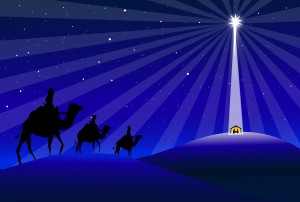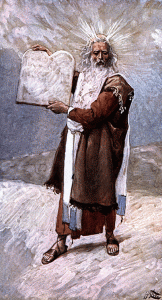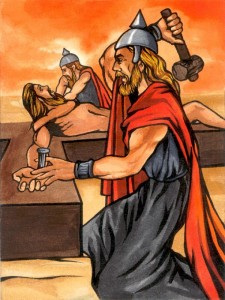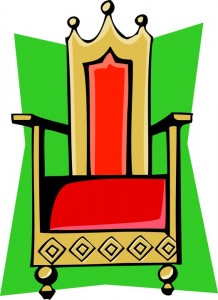In Genesis, Yeshua is the eternal Torah-light of the world, the breath of life and the seed of the woman.
In Exodus, he is the Passover lamb, the Torah-Word of Elohim, and the way to the Father in the tabernacle.
In Leviticus, he is our atoning sacrifice and our high priest.
In Numbers, he is the pillar of cloud by day and pillar of fire by night.
In Deuteronomy, he is the prophet like unto Moses.
In Joshua, he is the captain of our salvation who leads us into the kingdom of Elohim.
In Judges, he is our judge and lawgiver.
In Ruth, he is our kinsman redeemer.
In 1 and 2 Samuel, he is our trusted prophet.
In Kings and Chronicles, he is our reigning king.
In Ezra, he is the builder of our temple, which houses the Spirit of Elohim.
In Nehemiah, he is the rebuilder of the broken down walls of human life.
In Esther, he is our Mordechai who saves us from those who would kill, steal and destroy us.
In Job, he is our ever-living Redeemer.
In Psalms, he is our shepherd to lead us in the ways of Torah-life.
In Proverbs and Ecclesiastes, he is our wisdom.
In Song of Solomon, he is our Loving Bridegroom.
In Isaiah, he is the Suffering Servant who bears our sins, the Repairer of the Breach between the two houses of Israel, and the Prince of Peace.
In Jeremiah, he is our Righteous Branch.
In Lamentations, he is the weeping prophet.
In Ezekiel, he is the one who rejoins the two sticks of Israel bringing them to worship Elohim together his temple.
In Daniel, he is the fourth man in life’s fiery furnace and our Ancient of Day.
In Hosea, he is the faithful husband forever married to the backslider.
In Joel, he is the baptize of the Holy Spirit.
In Amos, he is our burden bearer.
In Obadiah, he is mighty to save.
In Jonah, he is our great foreign missionary.
In Micah, he is the messenger of beautiful feet.
In Nahum, he is our strength and shield, and the avenger of Elohim’s elect.
In Habakkuk, he is Elohim’s evangelist crying, “Revive thy works in the midsts of the years.”
In Zephaniah, he is our Savior.
In Haggai, he is the restorer of Elohim’s lost heritage.
In Zechariah, he is a fountain opened up in the house of David for sin and uncleanliness.
In Malachi, he is the Sun of Righteousness arising with healing in his wings.
In Matthew, Yeshua the Messiah is the King of the Jews.
In Mark, he is the servant.
In Luke, he is the Son of Man, feeling what you feel.
In John, he is the Son of Elohim.
In Acts, he is the Savior of the world.
In Romans, he is the righteousness of Elohim.
In 1 Corinthians, he is the Rock, the Father of Israel.
In 2 Corinthians, he is the triumphant one giving victory.
In Galatians, he is your liberty. He set you free.
In Ephesians, he is the head of his spiritual body.
In Philippians, he is your joy.
In Colossians, he is your completeness.
In 1 and 2 Thessalonians, he is your hope.
In 1 Timothy, he is your faith.
In 2 Timothy, he is your stability.
In Titus, he is truth.
In Philemon, he is your benefactor.
In Hebrews, he is your perfection.
In James, he is the power behind your faith.
In 1 Peter, he is your example.
In 2 Peter, he is your purity.
In 1 John, he is your life.
In 2 John, he is your pattern.
In 3 John, he is your motivation.
In Jude, he is the foundation of your faith.
In Revelation, he is the Righteous Judge of the world, the Avenger of the saints, your coming King, your First and Last, the Beginning and the End, the Keeper of creation, the Creator of all, the Architect of the universe and the Manager of all times. He always was, he always is and always will be. He’s unmoved, unchanged, undefeated, and never undone. He was bruised and brought healing. He was pierced to heal our pain. He was persecuted and brought freedom. He was dead and brought life. He is risen and brings power. He reigns and brings peace. The world can’t understand him, the armies can’t defeat him, the public schools can’t kick him out and the leaders can’t ignore him. Herod couldn’t kill him, the Pharisees couldn’t confuse him, the people couldn’t hold him, Nero couldn’t crush him, Hitler couldn’t silence him, the communists can’t destroy him, the atheists can’t explain him away, and the New Age can’t replace him. He is life, love, longevity and Lord. He is goodness, kindness, gentleness and Elohim. He is holy, righteous, mighty, powerful and pure. His ways are right, his word is eternal, his will is unchanging, and his eyes are on me. He is my Redeemer, he is my Savior, he is my Guide, he is my peace, he is my joy, he is my comfort, he is my Lord, and HE RULES MY LIFE!
Author Unknown, edited by Natan Lawrence





